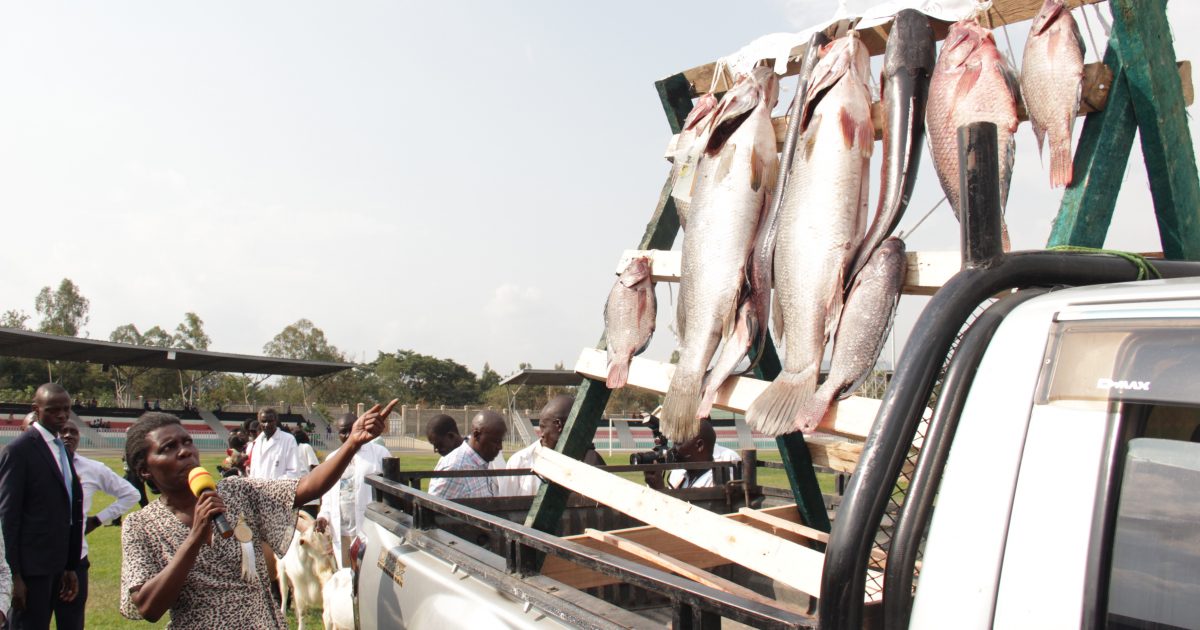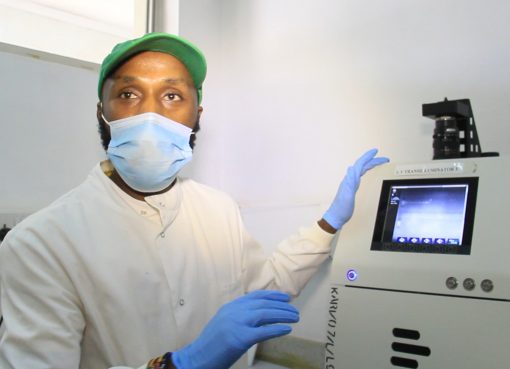Prime Cabinet Secretary (CS) Musalia Mudavadi has urged stakeholders and local leaders to establish sustainable practises and modalities that seek to address challenges ailing the sugar industry.
The sugar sector, he noted, serves the western region as the main source of livelihood and employment. Despite its role in Kenya’s economic growth, Mudavadi decried that historical difficulties continued to cripple the industry.
The Prime CS pointed out the acute cane shortage that has led to the closure of sugar mills.
Several sugar milling factories in Nyanza and western Kenya’s Sugar Belt temporarily halted their operations in July 2023 after demoralised farmers owed millions in unpaid delivered cane stopped growing the crop, causing the biting shortage.

Kenya produced 802,846 metric tonnes of sugar in 2022, against a national consumption of 1 million metric tonnes annually, forcing the country to import the deficit.
The global sugar shortage, Mudavadi observed, has compounded the problems in the sector, resulting in an increased price from an average of Sh6,199 per 50kg bag last year to Sh7,244.
The Prime CS noted that the imminent challenges had contributed to the skyrocketing cost of sugar in the country, pushing the price of the commodity to over Sh200 per kg, a record high in recent weeks.
“We must be honest and say that the scarcity of the commodity is the cause of current high prices. We must also be honest and admit that there are no easy solutions to longstanding issues aggravating the sugar industry. We have a national problem that requires leaders to engage for a lasting solution to the hindrances the industry faces,” the senior government official pleaded.
According to Mudavadi, the sugar industry has had its fair share of challenges that required urgent intervention, including the existence of old mills, high indebtedness, managerial incompetence, and cheap import competition.
He made the remarks when he officiated at the opening of the Kisumu Regional Agricultural Society of Kenya (ASK) show at Jomo Kenyatta International Stadium in Mamboleo, Kisumu County, on Friday.
Consequently, Mudavadi expressed the national government’s commitment to boosting agricultural production through agro-processing and value addition to empower farmers by putting money in their pockets.
In addition, the Kenya Kwanza administration has resolved to prioritise providing subsidies for production as opposed to consumption under the Bottom-Up Economic Transformation Agenda (BeTA).
BeTA, as the Prime CS emphasised, has prioritised rice, edible oils, cotton, coffee, maize, tea, leather, and dairy value chains with the aim of enhancing food security, increasing exports, reducing imports, and creating employment.
“Studies show that agricultural development has 11 times more potential to reduce poverty than any other sector of our economy. Our commitment, therefore, is to transform from subsistence agriculture to a commercially and globally competitive industry,” he said.
To succeed in tapping the huge agricultural potential, he noted, there is a need to address the decreasing soil fertility and deteriorating climatic conditions caused by climate change, as well as reduced farm sizes.
To this end, the fertiliser subsidy programme by the government has borne fruit, as farmers expect bumper harvests that would substantially lower the cost of food.
“In the first round, we reduced prices from Sh6,500 to Sh3,500 for the 50-kg bag of fertiliser. Consequently, we expect 41.2 million 90-kg bags of maize, a 31 percent increase from a long-term annual average of 31.3 million bags,” Mudavadi stated.
In the coming short planting season, he added, fertiliser prices would further go down to Sh2,500 per bag.
He revealed that the government seeks to encourage local investors to manufacture and blend the commodity in Kenya to reduce dependence on importation as a long-term measure to stabilise fertiliser prices.
Further, the government seeks to adopt climate-smart technologies in irrigation to build a more resilient agriculture sector.
Already, the state has initiated plans to construct 100 mega dams and a further 1,000 uptake dams in various parts of the country to increase irrigable land to 500,000 acres by 2026.
Through the initiative, Mudavadi disclosed, the government would save close to Sh87.5 billion on food imports, create 3 million new jobs and attain food self-sufficiency.
He raised concern regarding the nation’s over-reliance on food importation, which he described as a precursor to straining foreign exchange reserves. High import reliance also predisposes the country to food insecurity and impoverishes local farmers.
“We have no option but to urgently become self-reliant by increasing agricultural production,” insisted the Prime CS.
He stated that the national government, in collaboration with counties, is supporting farmers with high-yielding seed varieties, increasing mechanisation, controlling pests, and strengthening farmers’ groups and cooperatives to enhance productivity.
Mudavadi noted that Kisumu has the agro-ecological conditions to become a leading producer of edible oils; however, the sector remains untapped in the region.
Kenya’s annual consumption of edible oil is estimated to be over 900,000 metric tonnes, with a mere 80,000 metric tonnes being sourced locally.
“We import 95 percent of our vegetable oil, valued at Sh100 billion. Yet this region has the potential to produce these oils and pump some of these billions into the pockets of local people here,” he said.
However, he announced that the government has allocated Sh134 million to the Edible Oil Crops Promotion Project in the 2023–24 financial year and urged county governments to dip into the fund to procure planting material and build the capacity of farmers to produce edible oil crops.
In addition to vegetable oil processing, the edible oil value chain feeds into the cosmetic, pharmaceutical and food processing industries.
By Robert Ojwang’





